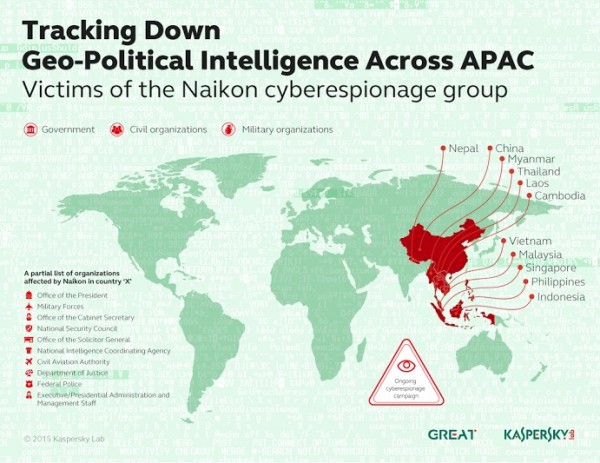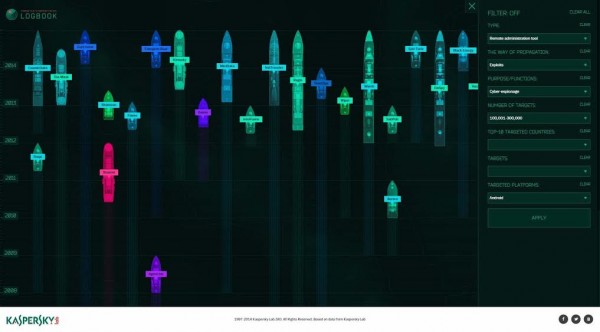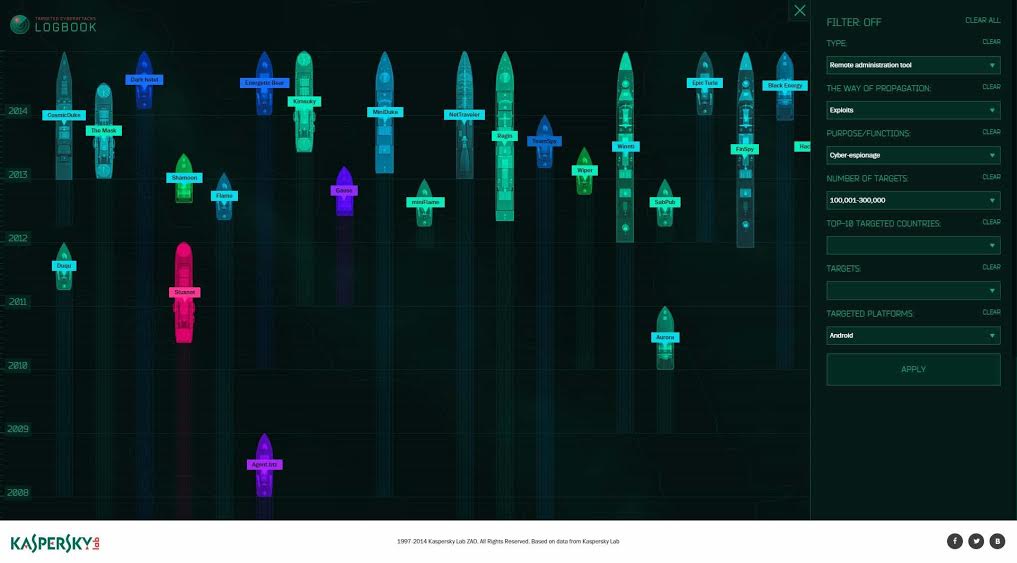
Next year looks to be a challenging one for cyber security firms; at least, as far as Kaspersky Lab is concerned. The security company predicts that targeted attacks in the Asia Pacific region will mature in 2016, as the hackers behind them become more experienced.
This prediction comes during the Kaspersky Lab APAC Cyber Security Summit, as the company has observed an increase in the number and sophistication of cyber security threats across the world. Kaspersky has also seen an increasing number of threats targeting the Asia Pacific region.

Two particular threats stood out as evidence of increasing sophistication of threats. The Naikon APT targeted multiple government institutions within the ASEAN region. The malware was detected in various southeast Asian countries, including several Malaysian based servers. On the other hand, Dark Hotel has been notable simply because the people behind it have not gone into hiding despite their activities being exposed.
While these two malware campaigns are especially advanced, they are unlike cyber attackers that originate within the APAC region. Cyber threats from this region have lacked sophisticated methods such as encryption, and code that reveals their origins. Kaspersky believes that this will not continue and hackers from the region will become better at what they do.

The increased threat to the APAC region will also come from criminal syndicates expanding their operations. This mainly concerns banking and financial sectors, but it is likely that attacks like Carbanak – that caused ATMs to simply spew forth cash – will be seen with increasing frequency here. Banks are especially vulnerable, and Kaspersky warns that they are ripe for the picking for organised cyber crime.
In addition to crime, Kaspersky also foresees more cyber sabotage taking place in the region. This is more likely to concern South Korea, which has already seen multiple attacks on its infrastructure from unknown parties. However, it could also spill out into other countries in the region. The company did not specify who would possibly be behind these attacks.
Next year looks to be an especially busy one for Kaspersky, and potentially other security companies. It doesn’t help that attacks on security companies are also expected to increase in 2016.
Follow us on Instagram, Facebook, Twitter or Telegram for more updates and breaking news.


